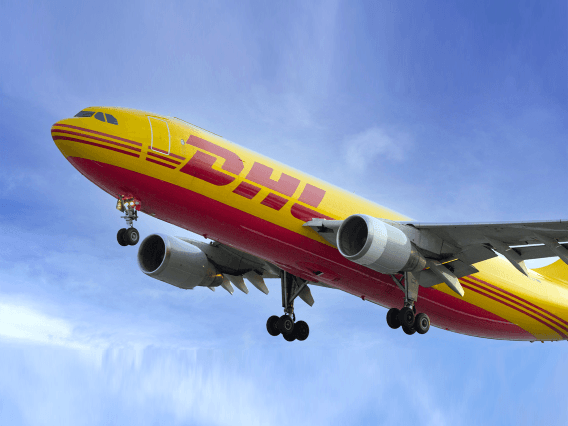
When DHL Express announced last week the renewal of its partnership with Mumbai Indians for the fifth year in a row, it was more than just a routine care. Under the surface of the story of this cricket and trading game, it lies a deeper novel that offers an insight into how international logistical service providers in one of the most dynamic markets in the world, and are closely compatible with local communication targets that include, decisively, air charging growth.
Dhl Express is the main sponsor of the most successful cricket privilege in India. But although the general face is the participation of fans and conscious climate campaigns, the basic strategy talks about the long DHL game: expanding its access and importance in the Air Express charging sectors in India and the time set for time, where competition with both international integrated and local players intensifies.
Behind the brand
The air freight sector in India, which is estimated at $ 2.3 billion in 2024, is expected to grow at an annual CAGR rate of more than 10 percent to 2030, according to government and industry data. Through incentive -related incentive plans (PLI), the expansion of rapid e -commerce, and the launch of multimedia logistical centers under Gati Shakti, the demand for fine logistics services increases sharply.
Dhl Express, the dominant player in the excellent part, clearly corresponds to his cultural clarity with this growth arc. Cricket, especially the IPL, offers unparalleled up in India – with more than 500 million viewers via platforms – but their value for air cargo professionals is not only in vision. It is in symbolic compatibility with advanced India’s needs: light movement, speed and integration.
“Sports and logistics services share a common topic – both of which work on the characteristics of accuracy and fitness,” said Sandep Yonga, Vice President of Sales and Marketing at DHL Express India. Our continuous relationship [with Mumbai Indians] It is a testament to our joint endeavor to succeed. “
In this drafting, the implicit recognition is that air cargo in India has become the least transaction and more complicated by the brand, as the reliability of the service and time performance (instead of the price alone) determines the market share. The values of Mumbai’s Indians – Excellence, Collective Work, Speed - Brand Agents for Logistics in DHL.
“The team is behind the team”
From the point of view of cargo operations, DHL Express is already a key player in international movements that know time inside and outside the main air portals in India: Mumbai, Delhi, Hyderabad, and Bangaluru. The description line “the team behind the team” may be rooted in sport, but from an operational point of view, it reflects the role of DHL in enabling logistical services in time for small and medium -sized companies and technology manufacturers in India.
For example, DHL reliance on the air freight sector in the operational infrastructure in India is evident. The company runs a custom truck fleet and is used widely of abdominal charging space through commercial airlines-and it is coordinated through its central centers in Leipzig and Hong Kong. India’s increasing exports-with goods exports in the fiscal year 2024-25 that were linked to 447 billion US dollars-represents a strategic opportunity, especially since accurate institutions seek faster roads to global markets.
By connecting its rapid brand to the distinction of cricket, the DHL not only chases the eyebrows. It merges itself into national awareness as a reliable operator in a country that still faces large logistical bottlenecks, including the integration of the cold chain, limited, fragmented tanks, and volatile land transport.
The “Six For A Case” campaign to partnership – as DHL is planted six trees per six strikes by the Mumbai Indian player – a layer of climate awareness of the mixture. Last season, 133 Sixes planted nearly 800 trees. While these initiatives are modest in terms of carbon, these initiatives are in line with the increasing pressure on logistical services companies to decarbonise.
The draft of the air freight policy in India and the national logistical policy (NLP) calls for “green freight corridors” and DHL, such as its peers, under organizational pressure and reputation to reduce domain emissions 3. Sustainable aviation fuel investments (SAF) will become, storing neutral carbon, and improving the path material indicators in the coming years. Campaign such as DHL’s, despite public relations, provides general association between goods and climate responsibility-a necessary narration as India pushes Net-Zero Aviation by 2070.
Strategy
The partnership also sends a reference to fast-growing Express players in India, Delhiver, ECOCE Express, and the Renewed Logistics Services Department in India-including-that DHL doubles on local splitting even with the growth of physical infrastructure.
With the expectation that air cargo inside India will grow by 12-14 percent, especially from cities from level 2 and 3, cultural partnerships will play a role in influencing purchasing decisions, especially between MSMes and digitally accredited retail dealers. It gives it a mixture of speed, vision and guarantee of the DHL brand a feature in the markets as the logistical reliability can directly affect revenue courses.